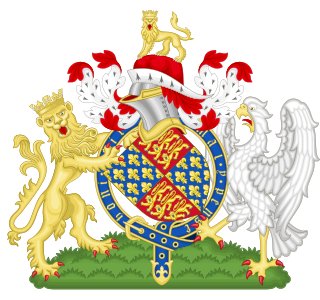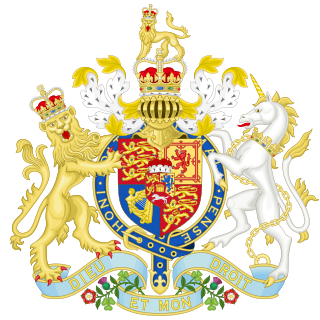Related Research Articles
Halsbury's Laws of England is a uniquely comprehensive encyclopaedia of law, and provides the only complete narrative statement of law in England and Wales. It has an alphabetised title scheme covering all areas of law, drawing on authorities including Acts of the United Kingdom, Measures of the Welsh Assembly, UK case law and European law. It is written by or in consultation with experts in the relevant field.
Fleta is a treatise on the common law of England. It was written in Latin with the sub-title seu Commentarius juris Anglicani. The anonymous author of the book is sometimes referred to as "Fleta", although this is not in fact a person's name. The book acquired its common title because its preface contains a remark that it could be called "Fleta" as it was written in "Fleta": however, the meaning of this comment is unclear.

The United States Statutes at Large, commonly referred to as the Statutes at Large and abbreviated Stat., are an official record of Acts of Congress and concurrent resolutions passed by the United States Congress. Each act and resolution of Congress is originally published as a slip law, which is classified as either public law or private law (Pvt.L.), and designated and numbered accordingly. At the end of a Congressional session, the statutes enacted during that session are compiled into bound books, known as "session law" publications. The session law publication for U.S. Federal statutes is called the United States Statutes at Large. In that publication, the public laws and private laws are numbered and organized in chronological order. U.S. Federal statutes are published in a three-part process, consisting of slip laws, session laws, and codification.

The Code of Virginia is the statutory law of the U.S. state of Virginia, and consists of the codified legislation of the Virginia General Assembly. The 1950 Code of Virginia is the revision currently in force. The previous official versions were the Codes of 1819, 1849, 1887, and 1919, though other compilations had been printed privately as early as 1733, and other editions have been issued that were not designated full revisions of the code.

The Suppression of Religious Houses Act 1539, sometimes referred to as the Second Act of Dissolution or as the Act for the Dissolution of the Greater Monasteries, was an Act of the Parliament of England.

The Statute Law Revision Act 1948 is an Act of the Parliament of the United Kingdom.

Statutes concerning forcible entries and riots confirmed or the Forcible Entry Act 1391 (1391) was an Act of the Parliament of the Kingdom of England. It provided that the Forcible Entry Act 1381 and one or more other pieces of legislation were to be held and kept and fully executed. It also authorised any justice of the peace, who had received a complaint that such a forcible entry had been committed, to take the power of the county to arrest any person found committing forcible detainer after that forcible entry.

The Piracy Act 1850, sometimes called the Pirates Repeal Act, is an Act of the Parliament of the United Kingdom. It relates to proceedings for the condemnation of ships and other things taken from pirates and creates an offence of perjury in such proceedings.
Statute law revision may refer to the printing of, or the editorial process of preparing, a revised edition of the statutes, or to the process of repealing obsolete enactments to facilitate the preparation of such an edition, or to facilitate the consolidation of enactments.
John Frederick Archbold (1785–1870) was a barrister and legal writer. He was the first editor of the English criminal law textbook Archbold Criminal Pleading, Evidence and Practice, which is still routinely used in court today.
In 1861 the British Parliament passed the first of a long series of Statute Law Revision Acts. The most important action, was the nomination of Statute Law Committee by Lord Chancellor Cairns in 1868, the practical result of which was the issuing of the first edition of the Revised Statutes in eighteen volumes, bringing the revision of statute law down to 1886.
The Statute Law Committee was appointed for the purpose of superintending the publication of the first revised edition of the statutes in the United Kingdom. It also prepared the bills for Statute Law Revision Acts up to, and including, the Statute Law Revision Act 1966.
Current Law Statutes Annotated, published between 1994 and 2004 as Current Law Statutes, contains annotated copies of Acts of the Parliament of the United Kingdom passed since 1947 and Acts of the Scottish Parliament passed since 1999. It is published by Sweet & Maxwell in London and by W Green in Edinburgh. It was formerly also published by Stevens & sons in London.

The Summary Jurisdiction Act 1884 was an Act of the Parliament of the United Kingdom. Courtney Ilbert described this Act as an "expurgatory Act".

The Dean Forest Act 1861 is an Act of the Parliament of the United Kingdom. It is a public general Act. It was omitted from the third revised edition of the statutes because of its local and personal nature.

The Lord Steward Act 1554 is an Act of the Parliament of England.

The Duchy of Cornwall Act 1812 is an Act of the Parliament of the United Kingdom. It is a public general Act. It was omitted from the third revised edition of the statutes because of its local and personal nature.

The Duchy of Cornwall Office Act 1854 is an Act of the Parliament of the United Kingdom. It is a public general Act. It was omitted from the third revised edition of the statutes because of its local and personal nature.
Cox's Criminal Cases are a series of law reports of cases decided from 1843 to 26 June 1941.
The Administration of Justice is the process by which the legal system of a government is executed. The presumed goal of such an administration is to provide justice for all those accessing the legal system. The phrase is also commonly used to describe a University degree, which can be a prerequisite for a job in law enforcement or government.
References
- ↑ William Twining and David Miers. How to do Things with Rules. Third Edition. Weidenfeld and Nicolson. London. 1991. Page 334.
- ↑ The Statutes Revised. Third Edition. HMSO. 1950. Volume I. Page ix.
- ↑ O. Hood Phillips. A First Book of English Law. Fourth Edition. Sweet & Maxwell. 1960. Page 94.
- ↑ Baker, J H. An Introduction to English Legal History. Third Edition. Butterworths. 1990. ISBN 0406531013. Page 234.
- ↑ The Statutes Revised. Third Edition. HMSO. 1950. Volume I. Page x.
| Look up statute book in Wiktionary, the free dictionary. |